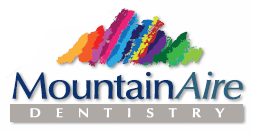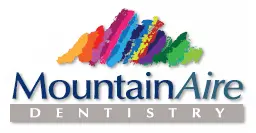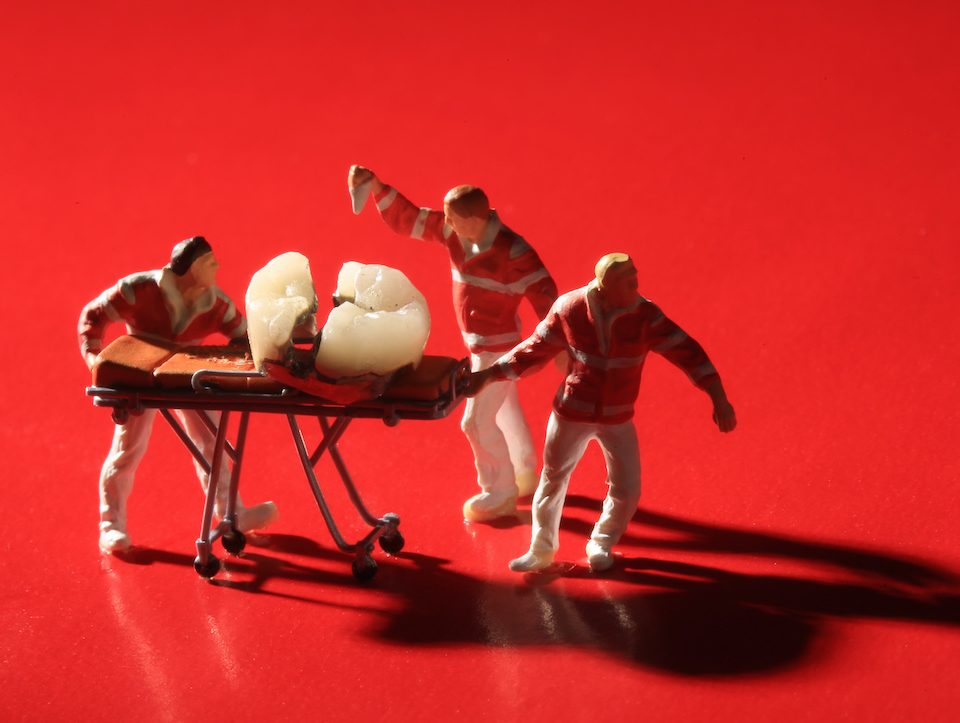Emergency Room or Dentist? What to Know if You Experience a Dental Emergency

Caring For Your Smile After Wisdom Teeth Removal
May 20, 2021
How to Comfort Teething Babies
June 10, 2021Emergency Room or Dentist? What to Know if You Experience a Dental Emergency

When an emergency happens, you need care — fast. However, with an injury to the mouth, it can be hard to know if you need to go to the emergency room or call your dentist. In this article, we’re discussing the situations where you can just call us for a dental emergency vs. when you should head to the ER.
What is a Dental Emergency?
We consider a dental emergency to be when you experience one of the following:
- Chipped or broken teeth
- Knocked-out teeth
- Cracked or fractured teeth
- Partially knocked-out teeth
- Lost or damaged dental restorations (such as a filling or a crown)
- An object stuck between the teeth that does not come loose with gentle flossing
- A severe, lasting toothache or tooth pain
- Injuries to the soft tissues of the mouth (such as the gums, lips, cheeks, or tongue)
Dental Emergency: What to Do
Accidents happen and our smile could be affected when we least expect it. For example, you could trip and fall and knock out a tooth. Knowing what to do in the event of a dental emergency could make all the difference in saving your tooth or losing it forever.
Did you know that more than five million teeth are knocked out every year in children and adults? While this is a staggering statistic, not all hope is lost. If you experience a knocked out tooth due to injury or an accident, it might not be lost for good. When you know what steps to take in the event of having a tooth knocked out can help you save the tooth. The American Association of Endodontists explains what to do to potentially save your tooth:
- Pick the tooth up by the crown (the chewing surface) not the tooth root. Once your tooth is knocked out, locate it immediately and handle it with care.
- Use only water to gently clean the tooth. Do not use soap or scrub the tooth. Further, do not wrap the tooth in any kind of tissue or cloth. Reposition the tooth in the socket immediately if able. Try to put the tooth back in it’s correct spot in your mouth right away. Gently push it in with your fingers, by handling the crown, or position it above the socket and close your mouth slowly. Hold the tooth in place with your fingers or by gently biting down on it.
- Keep the tooth moist at all times. To save the tooth, it needs to retain moisture. If you can’t replace it back in the socket, put it in milk or in your mouth next to your cheek. Additionally, you can purchase an emergency tooth preservation kit to keep on hand that you can also place the tooth in. Do not use tap water as the tooth root cannot tolerate it for long periods of time.
- Get to the dentist within 30 minutes of your injury. Bring the tooth with you to your dentist within 30 minutes. If you can’t get to a dentist within 30 minutes, still bring the tooth. It is possible in some cases to save the tooth that has been out of the mouth for an hour or more.
At Mountain Aire Dentistry, we allow time in our schedules everyday to accommodate dental emergencies. If you have a dental emergency, get to us quickly!
Knowing When to Go to the ER
Not all dental emergencies mean coming straight to our office. It’s important to note that if you have experienced trauma to the head or neck, we recommend going to the emergency room before calling your dentist — even if your smile has been injured.
If you’re experiencing the following symptoms in addition to a tooth injury, you should seek emergency care from the hospital immediately:
- Lost consciousness or a feeling confused or disoriented after the injury.
- If the injury was sustained at a high speed (like in a car accident, bike accident, or a steep fall).
- Vomiting or nausea.
- Trouble balancing.
- Can’t remember things about the injury.
- Seizures.
- Bleeding from the head.
- Headaches that won’t go away.
- Mood swings or trouble concentrating.
- Slurred speech and issues reading or writing.
- Feeling numb, dizzy, or weak.
- Difficulty falling asleep or waking up.
- Changes in eyesight.
- Discharge coming from the nose or eyes.
Save Your Smile with Mountain Aire Dentistry
While we encourage you to visit our office on a regular basis for routine cleanings and checkups, we understand that you cannot always plan when you will need to visit the dentist. If you experience a dental emergency, you may feel uncertain about what you should do. If you’re not sure whether to go to the emergency room, call Mountain Aire Dentistry for advice. We welcome you to call us with questions — staying knowledgeable can help save your smile in a dental emergency.
When you visit our Broomfield dental office, your smile is our top priority. Our Dentists invite you to experience the difference a warm and caring team can provide for you and your family. Enjoy a unique and comfortable dental experience designed to bring a healthier and happier smile back into your life. We invite you to call or visit our Broomfield dental office and discover the exceptional difference we offer to those we serve.













